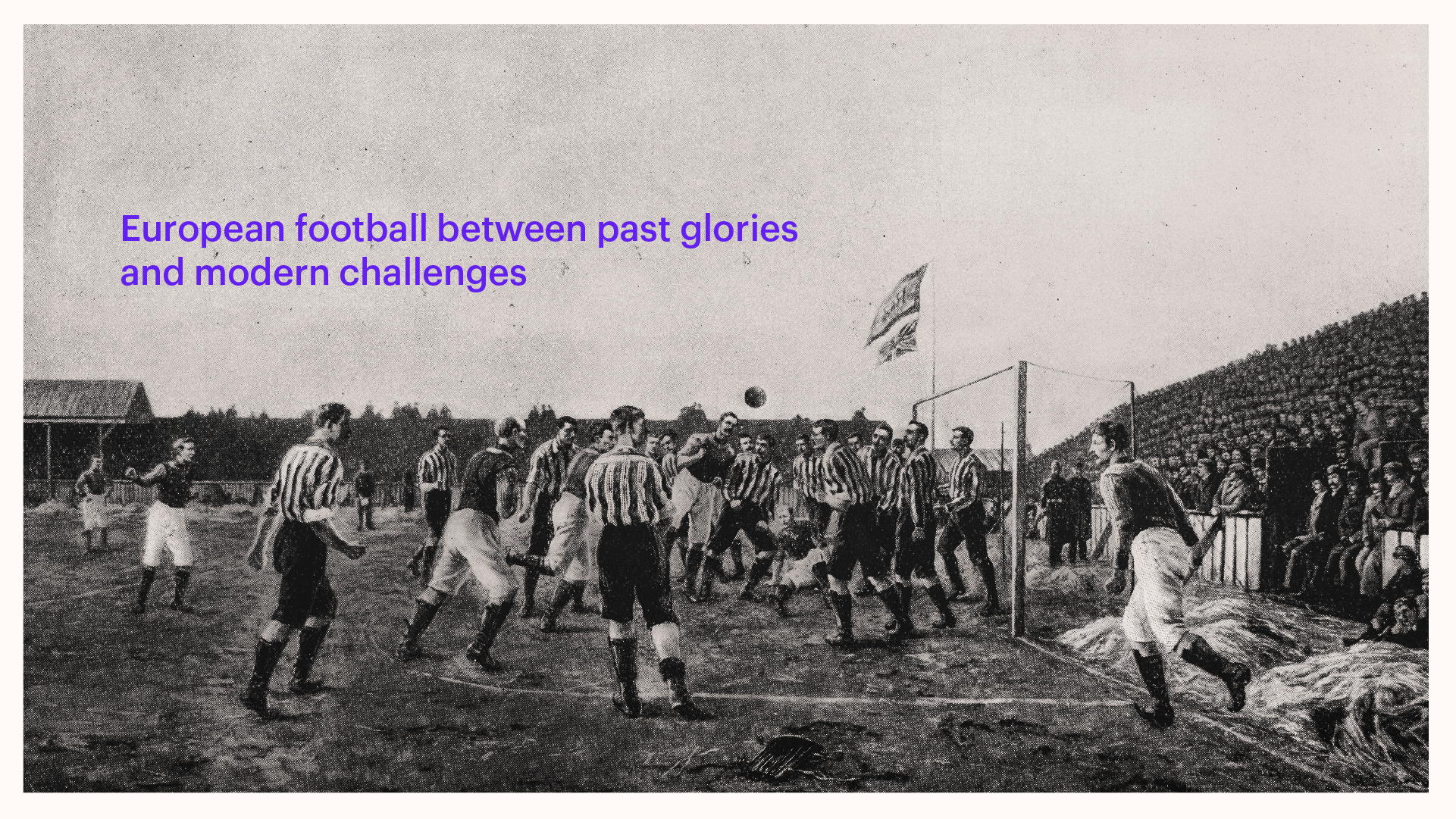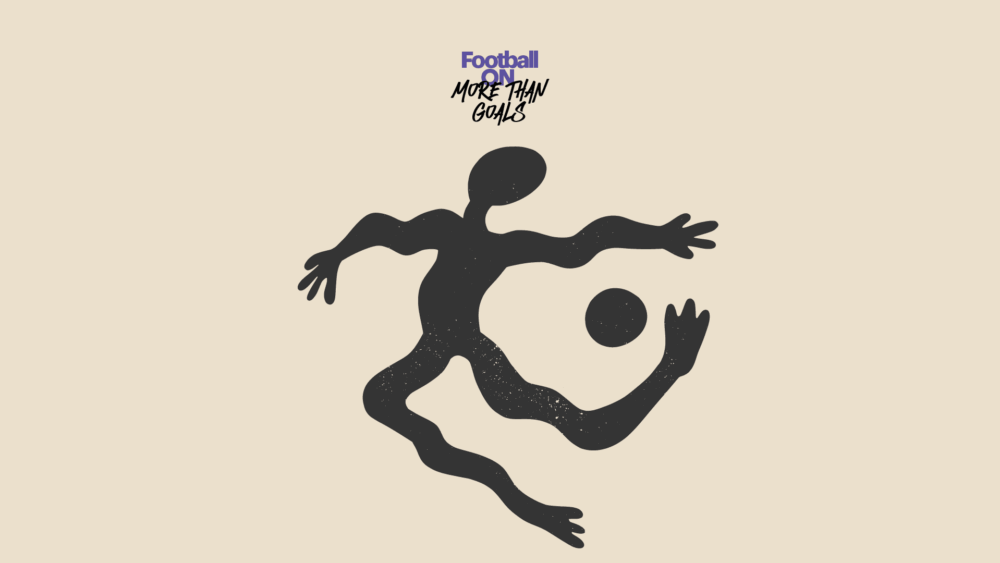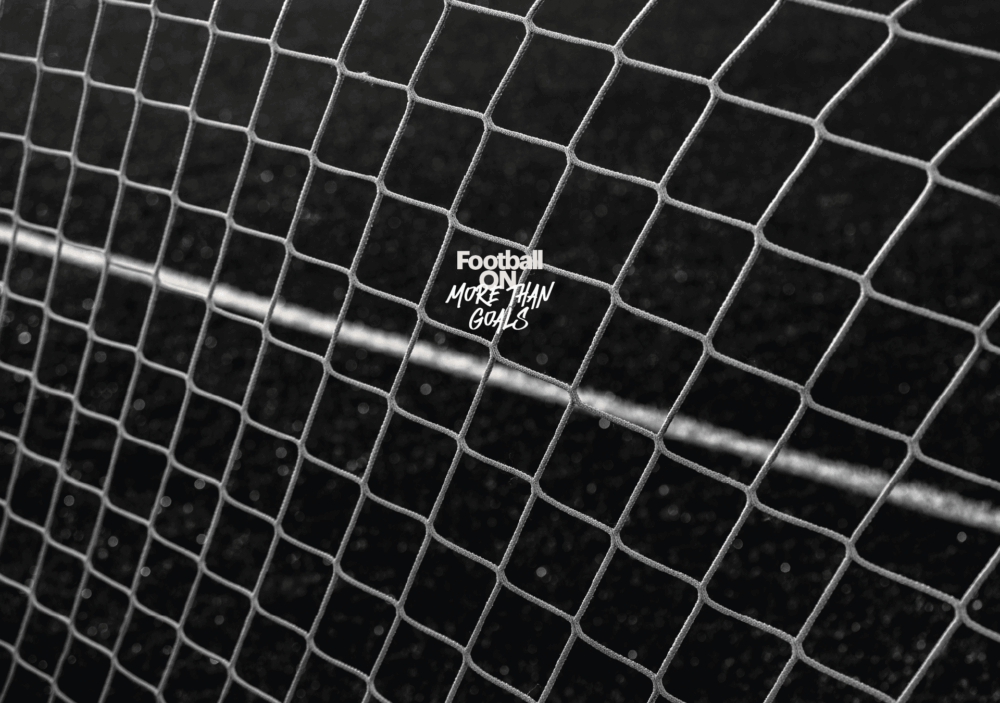
European football between past glories and modern challenges
Kostas Maronitis is Professor of Politics and International Relations at Leeds Trinity University and the lead researcher of ETERON’s FootballON: More Than Goals project. He writes about the changes taking place in modern football, the relationship between football and capitalism, football nostalgia and wonders if the sport is going through an existential crisis.
European football is facing a seismic shift. Saudi Arabia’s growing dominance of the football landscape presents significant challenges to the game’s traditional power structures. By investing in elite players, clubs and tournaments, Saudi Arabia is reshaping the future of the sport. This reshaping is perhaps most vividly symbolized by the Spanish Super Cup being hosted in Saudi Arabia – a controversial move that underscores the growing influence of the Middle Eastern state. Journalists and politicians have questioned the decision, viewing it as a play on economic power, while FIFA president Gianni Infantino has praised Saudi Arabia’s ambitions and activities, stating that they can transform football on a global scale.
Modern football is a global sport, shaped by the trends of the global economy as they have been defined over the past forty years. Conflicting and contradictory definitions of globalization abound in political, economic and cultural discourse. Globalization is generally a contested process, which reduces the importance of national borders as an obstacle to the free movement of ideas, capital, services and material goods. More specifically, globalization is a process where international trade grows faster than domestic production and international direct investment grows faster than domestic trade. Amid the rise of nationalism, xenophobia and economic protectionism, the extent to which football has become globalized is a more complex and nuanced issue.
Perhaps the discussion of football and globalisation needs to be reoriented towards a different alignment of forces where football is partly shaped by global capital but also has the potential to shape it. The introduction of finance companies and bitcoin platforms into the television and sports landscape, the sale of stadium naming rights to insurance, airline and betting companies, combined with the creation of football conglomerates with diverse activities and ambitions under the supervision of sporting directors, make football one of the main drivers of modern global capitalism. It could also be argued that it is impossible to avoid the ideological hegemony of global capitalism when dealing with modern football, whether in its professional or amateur manifestations. However, such an ideological hegemony provides the necessary analytical tools to highlight the challenges facing European football. By adopting a critical and progressive approach, we can point out that the link between football and global capitalism is materially and intellectually supported by the direct correlation and interaction of political, economic and cultural forces that transcend and at the same time incorporate national and local interests.
Although European football has officially introduced what is commonly known as the free movement of workers within the European Union, allowing an unlimited number of European footballers to play for European clubs, issues of immigration and ethnic hostility have not ceased to concern footballers, fans, sponsors and stakeholders. On the contrary, professional football has created new channels of communication for the expression and revival of historical prejudices and hostilities. Characteristically, the grudge matches between Switzerland and Serbia not only revive the hostilities of the Yugoslav civil war due to the large number of Swiss footballers of Kosovar origin, but more importantly, they introduce new means of understanding and communicating Kosovo’s status as a state not recognized by the Serbian government on a global stage supported by football events and sponsorships.
A similar example is the case of the German footballer of Turkish origin Mesut Ozil who lost his place in the German national team due to his political relationship with Turkish President Recep Tayyip Erdogan. Ozil reacted to the public perception that he was not German enough by claiming that “people used my photo with President Erdogan as an opportunity to express their hidden racist tendencies”, concluding that “I am German when we win, but I am an immigrant when we lose”.
The lack of accountability and transparency in professional football clubs is compensated by the opportunity given to fan consumers to comment, express their euphoria and discomfort and, whenever possible, interact with football players on social media. Furthermore, the cultural and social composition of fandom has changed and more specifically has been aligned with contemporary indicators of success and championship. Websites such as the German transfermarkt with its global reach and digital offshoots in 25 countries including Greece, Brazil, Indonesia, Turkey, Italy, Mexico, Japan, the Netherlands, Romania, France, Germany and Spain not only provide a wealth of information on the current market value of football players, transfer rumours and isolated statistical categories but also establish the mentality that everything that happens off the pitch is just as important as what happens on the pitch.
The gradual and persistent disconnection of football from its so-called traditional and popular base does not necessarily mean that football clubs and sportswear companies are not interested in maintaining a cultural and commercial connection between the club and the fans and between professionalism and popular history. Such a connection is created by the strong feeling of nostalgia and more specifically nostalgia for a past where capital and professionalism were not the driving force of football. With the support of a global and impersonal capital, sportswear and betting advertisements recreate a world uncontaminated by social media, intermediaries and owners cut off from the social and class context within which teams have shaped their collective identity. Modern football nostalgia involves the curation and projection of black and white television footage, direct contact between fans and players, and jerseys and stadiums that have not yet been colonized by sponsorships and advertisements. Advertising not only plays a crucial role in creating nostalgia, but also determines the things that fan consumers are nostalgic for. In the modern popular consciousness, capital is not a homogeneous force that contributes to the alienation of the fan from football. Recent marketing campaigns by Adidas and Puma have attempted to reintroduce familiar capital into the football world by reissuing jerseys advertising FIAT cars and Barilla pasta. In this case, familiar capital can be characterized as anything that fan consumers are able to know and consume.
Is European football facing an existential crisis? Has the over-recycling of past memories reached a dead end? In many ways, European football is stronger than ever, but it exists only as a void signifier waiting to be filled by sovereign wealth funds based in oil and gas-rich countries. The current state of European football shows that the European economy is unable to support football clubs in major competitions and requires the financial assistance of countries, companies and specific individuals whose understanding of football success goes beyond the confines of a football pitch and extends into the world of politics and international relations.




